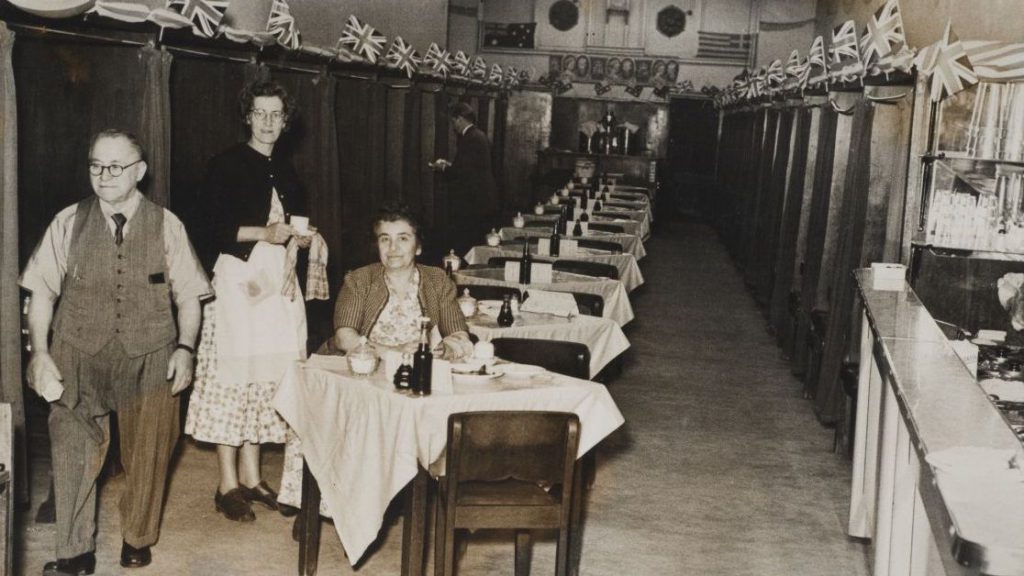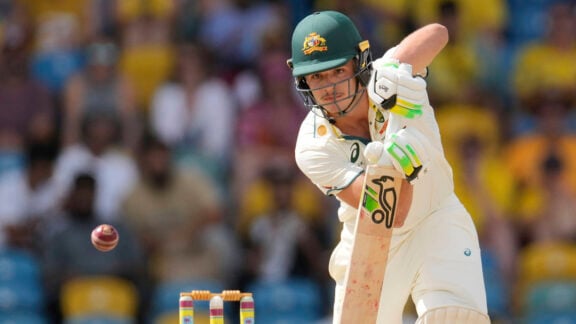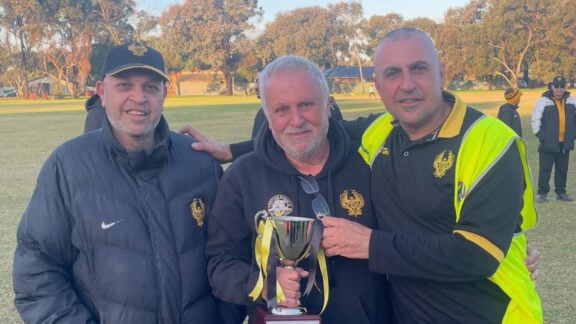In an Australia many still remember, in each suburb and every country town was the Greek café or milk bar – open all hours, seven days a week.
An upcoming lecture at the Greek Centre chronicles how these family-based food catering enterprises set the agenda for, and broadly affected and influenced, Australian popular culture.
Greek cafés and milk bars in Australia were a ‘Trojan horse’ for the Americanisation of the eating, social,and cultural habits of Australians from the very start of the twentieth century. They introduced American commercial food catering ideas, technology, and products and influenced the development of cinema, popular music, and even architecture along American lines. The Greek café and milk bar transformed Australian popular culture.
Quite a number of Australia’s early Greek food caterers had relatives and friends living and working in the US or had been there themselves working as, or for, Greek American food caterers. During the 1910s, Greek oyster saloons and fish shops introduced the front-service soda fountain from the US as well as ‘American-style’ ice cream, milk chocolate, and candies. By the 1920s these oyster saloons and fish shops had transformed themselves into soda/sundae parlours, and had cultivated such an insatiable public demand for their new American-style food sensations, that American food companies quickly crossed the Pacific into the Antipodes. In the early 1930s the milkshake was popularised and the milk bar created, based upon the American drug-store soda parlour; the concept then travelled to New Zealand, South Africa, and Great Britain, and back to the US. By the late 1930s, the hamburger was emerging commercially in Australia’s Greek cafés. This was also the start of the ‘golden age’ of the Greek café and milk bar, which brought all these American food catering influences together and instigated a long-term working relationship with cinemas. By the mid-1940s jukeboxes had appeared in a number of Greek cafés and milk bars. Consequently, in the late 1950s, the rock’n’roll generation embraced the ‘Top 40’. In the late 1960s and early 1970s Greek cafés and milk bars were undergoing a transformation to ‘take-aways’ in response to rapidly growing fast food economy that they had assisted to develop. Traditional Greek cafes are now very few in number; nostalgic reminders of the powerful vehicles of social cultural change they once were.
Presented by documentary photographer Effy Alexakis and social historian Leonard Janiszewski, the upcoming lecture investigates in detail the overall development of Greek cafés and milk bars across Australia (including Melbourne and Victoria), and the personal stories of those involved – proprietors, wait staff and customers – and in particular women.
What the presentation clearly demonstrates is not only the transformative nature of Greek migration and settlement upon our nation, but that, to a significant extent, through the Greek diaspora Australia’s popular culture allegiances were being drawn to the United States rather than Britain. Australia had become part of the diaspora’s global circulation of ideas and experiences.
MELBOURNE LECTURE SERIES:
The two Macquarie University researchers will present a series of four free lectures: three on the history of the Greek café and milk bar in Australia, and one on the historical and contemporary occupational preferences of Greek Australians. These are to be hosted at the following venues:
Preston Library
266 Gower Street, Preston Wednesday 26 April at 7.00 pm
Bookings and details: (03) 8470 8042
eventbrite.com.au/e/greek-cafes-and-milk-bars-of-australia-tickets-32421696166
Oakleigh Library
148 Drummond Street, Oakleigh Thursday 27 April at 2.00 pm
Bookings and details: (03) 9563 4138
monlib.vic.gov.au/Events/Greek-Cafes
Mill Park Library
394 Plenty Road, Mill Park
Friday 28 April at 1.00 pm
Bookings and details: (03) 9437 8189
nationaltrust.org.au/ahf_event/greek-cafes-and-milk-bars/#.WObWuTSwS0Q.facebook
The pair will also present a second lecture: ‘Enterprise & Diversity: Greek Australian Occupational Pursuits, 1810s to Present’ as part of the Greek Orthodox Community of Melbourne and Victoria’s 2017 Lecture Series.
From the late nineteenth century until the closing decades of the 20th century, Greeks played a large part in Australia’s food catering industry. They continued, nevertheless, to enter a wide variety of occupations. These included: agricultural and pastoral activities, mining, sea-related industries, itinerant work, secondary industries, public life, professional fields, and artistic and sporting avenues. Moreover, their contribution in some activities proved significant.
Alexakis and Janiszewski firmly challenge the entrenched, popular stereotype of Greek Australians as being historically defined as essentially a collection of fish’n’chip shop owners and café and milk bar proprietors. Rather, the complex and broad involvement of Greek Australians in this nation’s mainstream development over the last two hundred years is clearly revealed, acknowledged, and celebrated.
Where: Greek Centre, Bourke Street, Melbourne
When: Thursday 27 April at 7.00 pm
For more information: phone (03) 9662 2722 or head to www.greekcommunity.com.au and follow the event links.
‘Greek Cafés & Milk Bars of Australia’ (Halstead Press, 2016) and ‘In their own Image: Greek Australians’ (Hale & Iremonger, 1998) will be available for purchase and signing at these events.








